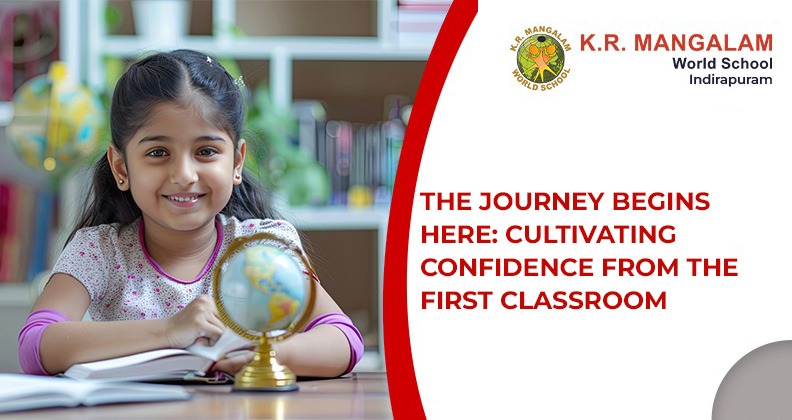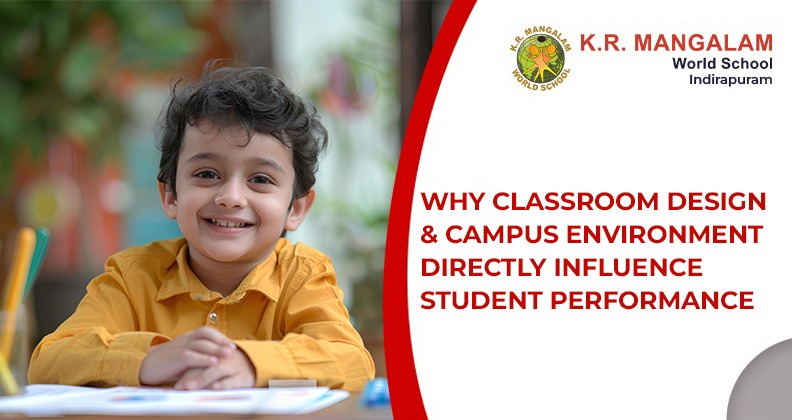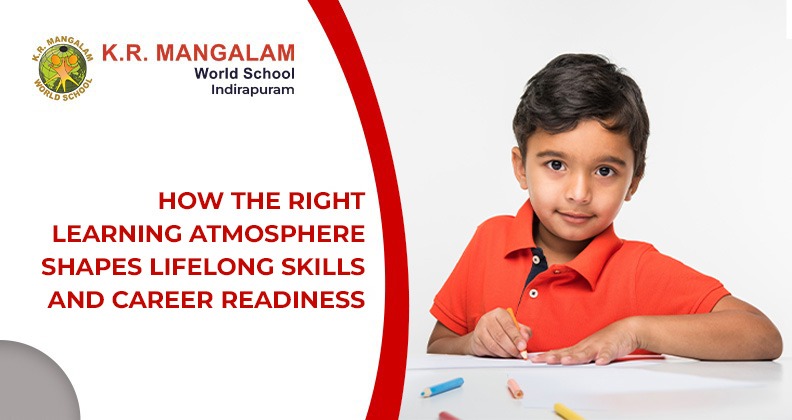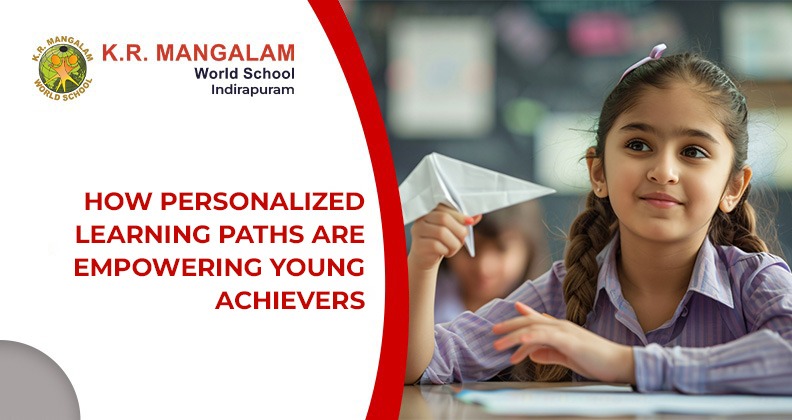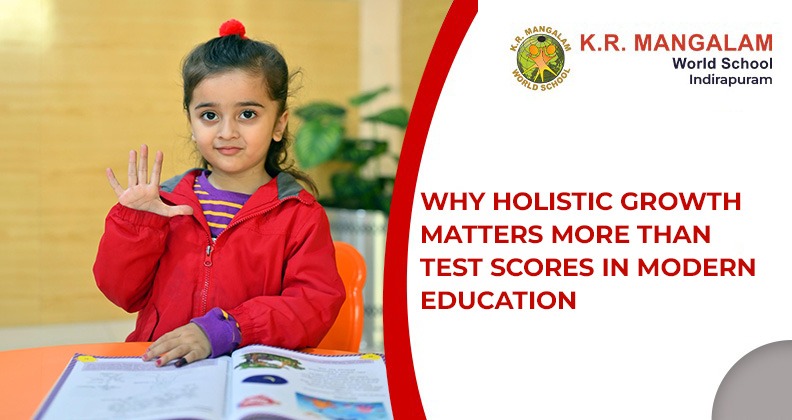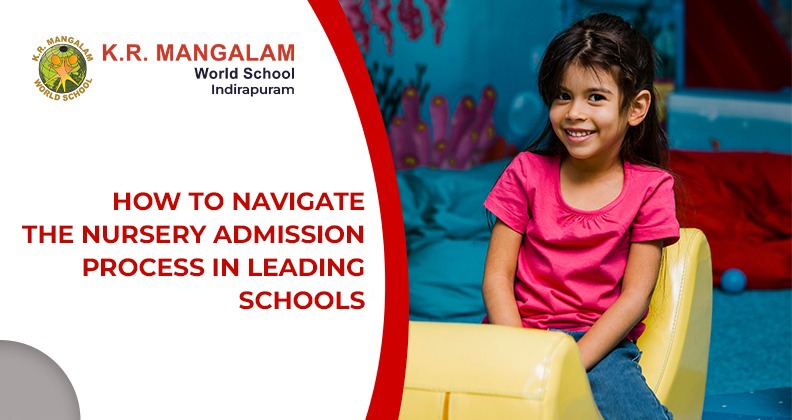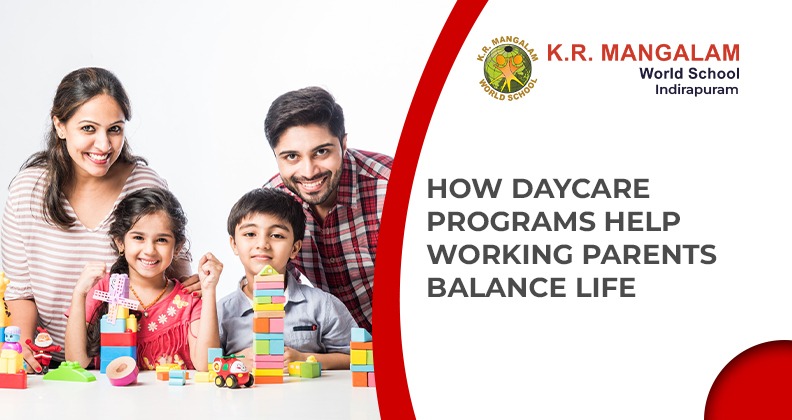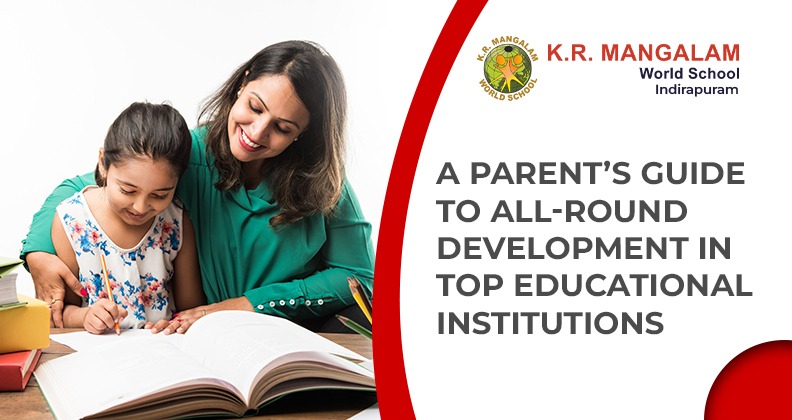Introduction:
Every child’s journey of learning starts with a single step — the moment they enter their first classroom. It’s where curiosity meets encouragement, and small steps grow into giant leaps of confidence. At K.R. Mangalam Indirapuram, the Best Preschool in indirapuram where the early years are a magical time, where a child’s mind absorbs knowledge, emotions, and habits that will shape their personality for life.
At this stage, what children need most is not pressure to perform, but the confidence to explore. A nurturing environment, guided by expert educators, helps children develop a sense of security and self-belief that becomes the foundation of lifelong success.
That’s where the role of the preschool becomes crucial. Such a preschool isn’t just about ABCs and 123s — it’s about building the courage to ask questions, make friends, try new things, and learn from every experience.
Let’s explore how the journey of confidence begins in the first classroom and how the right preschool environment plays a key role in helping children flourish emotionally, socially, and intellectually.
About Us:
From the moment children walk into our pre-primary environment, we focus on building confidence through exploration, play and positive relationships. Our early years curriculum blends storytelling, sensory play, collaborative art and outdoor discovery activities to nurture self-belief and curiosity. Daily routines are reinforced through events such as “Mini Leaders Day,” parent-child activity mornings and confidence-building assemblies. Co-curricular options—dance, music, nature walks, puppet shows—help children express ideas, make friends and develop independence. Our safe, vibrant classrooms, junior-friendly play areas and supportive educators ensure every child enjoys a warm welcome. As they grow, this foundation carries them into more complex tasks, with the assurance: “I can do this.”
1. The Power of the First Classroom Experience
For many children, preschool is their first structured environment outside of home. It’s the first time they interact with teachers, peers, and new routines. These experiences can shape how a child perceives learning for years to come.
That’s why the preschool focuses on creating a warm, secure atmosphere where children feel comfortable to express themselves. Every small achievement — from speaking in front of others to tying their shoelaces — becomes a stepping stone toward self-confidence.
When children feel valued and supported, they begin to trust their instincts and gain the courage to take initiative. This early confidence transforms the way they approach challenges later in life.
2. Building Emotional Security: The Foundation of Confidence
Confidence begins with emotional safety. Before a child can explore, they need to feel that they belong — that they are seen, heard, and accepted.
Preschools that prioritize emotional well-being ensure that teachers act as caring mentors rather than mere instructors. They listen, encourage, and guide with patience, helping children navigate their emotions in a healthy way.
In the preschool, teachers use strategies like positive reinforcement, storytelling, and empathy-driven communication to create a trusting bond. This emotional connection helps children feel secure enough to try, fail, and try again — a vital part of building self-assurance.
3. Encouraging Exploration and Independence
A confident child is one who feels capable of making decisions and solving problems independently. That’s why early education programs emphasize hands-on learning, discovery, and exploration.
Children are naturally curious. They want to touch, see, and understand the world around them. A thoughtfully designed classroom encourages this curiosity through sensory activities, creative play, and inquiry-based projects.
In a learning space inspired by the preschools, teachers don’t just give answers — they ask guiding questions:
“What do you think will happen if we mix these colors?” or “How can we build this taller?”
Such questions ignite curiosity and critical thinking, allowing children to take ownership of their learning process. As they experiment and find solutions, their confidence grows naturally.
4. Learning Through Play: The Joyful Path to Confidence
Play is not just recreation — it’s the language of childhood. Through play, children express their ideas, emotions, and creativity while developing cognitive and social skills.
Structured play activities, like building with blocks, storytelling circles, or pretend play, teach cooperation and problem-solving. When children collaborate or act out roles, they learn empathy, patience, and communication — all essential ingredients of self-confidence.
Preschools are recognized for their excellence design play-based curriculums that balance fun and learning. These joyful interactions help children see that learning isn’t something to fear, but something to look forward to every day.
5. Communication Skills: Building the Voice of Confidence
Confidence is most visible through a child’s ability to express thoughts clearly. Language development, therefore, is a cornerstone of preschool education.
Teachers encourage storytelling, singing, recitation, and show-and-tell sessions where children can speak about their favorite toys, animals, or weekend experiences. Over time, even the shyest learners find their voice and begin to speak with confidence.
The preschool integrates communication-rich activities across subjects — from phonics-based learning to music and drama — ensuring children not only build vocabulary but also the courage to communicate their ideas proudly.
6. Cultivating Social Confidence: Learning to Belong
Preschool is also a child’s first community experience. Here, they learn to share, cooperate, and respect differences. Social confidence grows when children interact freely with peers and feel included.
Group games, collaborative art projects, and classroom responsibilities — such as distributing materials or leading a song — teach them leadership and empathy.
In nurturing early learning settings, teachers model respectful behavior and kindness, helping children understand how to navigate friendships and conflicts positively. This early sense of belonging fosters strong social confidence that benefits them for years to come.
7. The Role of Teachers as Confidence Architects
Teachers are at the heart of early confidence-building. They act as guides who balance encouragement and independence, helping children believe in their own abilities.
An attentive teacher notices when a child hesitates to try something new — and gently provides the right amount of support. They celebrate every small milestone, whether it’s a first drawing, a new word, or a kind gesture toward a classmate.
At the preschool, educators receive continuous training in child psychology and early learning methodologies, ensuring that every interaction — from morning greetings to storytelling sessions — contributes to emotional and intellectual growth.
8. Fostering Creativity and Imagination
Creativity is a gateway to confidence because it allows children to see the value of their ideas. When their imagination is encouraged, they feel proud of their unique perspectives.
Art, music, and storytelling sessions invite children to express themselves freely. A blank sheet of paper becomes a canvas for self-discovery. Teachers praise originality rather than perfection, teaching children that every creative effort matters.
Preschools that emphasize creative learning environments nurture children who think outside the box — curious, expressive, and self-assured individuals ready to embrace the world with confidence.
9. Positive Reinforcement and Growth Mindset
Confidence grows when children learn that mistakes are part of the learning process. Instead of focusing on outcomes, educators in the preschools focus on effort and improvement.
When a teacher says, “You worked really hard on this,” instead of “You’re so smart,” it helps children develop a growth mindset — the belief that abilities can improve with practice.
This approach empowers children to take risks, persist through challenges, and see every setback as an opportunity to learn. Over time, they become resilient learners who aren’t afraid of failure.
10. Building Routines That Inspire Confidence
Predictable routines make children feel safe. When they know what to expect each day — from morning assembly to playtime and story sessions — it gives them a sense of control and stability.
A structured daily rhythm, as practiced in leading preschools, teaches time management, responsibility, and discipline in an age-appropriate way. These small habits contribute significantly to self-confidence, as children learn to handle transitions smoothly and take pride in their independence.
11. Partnering with Parents: The Home-School Connection
Confidence-building doesn’t stop when the child leaves the classroom. The collaboration between parents and teachers plays a vital role in ensuring consistent emotional support.
The preschool maintains open communication with parents through regular updates, workshops, and progress discussions. This partnership helps families understand how to encourage confidence at home — through appreciation, patience, and positive feedback.
Simple activities like reading bedtime stories, encouraging curiosity-driven questions, or letting children make small choices (like picking their outfit or snack) reinforce the lessons learned at school.
12. Safe and Stimulating Learning Environments
A well-designed classroom can boost confidence more than we realize. A space that feels colorful, accessible, and engaging helps children feel at ease and motivated to participate.
Preschools known for their quality which ensure that classrooms are child-centric — with cozy reading corners, creative art walls, and sensory play zones. Safety is always a top priority, allowing children to explore freely without fear.
Such thoughtfully curated environments signal to children that their comfort and curiosity matter — an essential message for developing self-assurance.
13. Celebrating Individuality
Every child learns differently — some through words, others through movement, and some through observation. The best early learning programs respect these differences instead of forcing uniformity.
Teachers identify each child’s strengths and learning style, offering tailored guidance. A child who loves music might be encouraged to express lessons through song, while another who enjoys building might learn math concepts through blocks.
This recognition of individuality communicates to children that they are special in their own way — a cornerstone of true confidence.
14. Emotional Intelligence: Confidence with Compassion
Real confidence isn’t arrogance — it’s rooted in empathy and understanding. Teaching emotional intelligence helps children recognize and manage their feelings, as well as respect those of others.
Circle-time discussions, emotion cards, and reflective storytelling are used to teach concepts like kindness, patience, and gratitude. These lessons empower children to connect confidently with people around them, balancing self-belief with compassion.
15. From the First Classroom to Lifelong Success
The first classroom experience is much more than an introduction to letters and numbers. It’s where children learn who they are, how to communicate, and how to face the world with courage.
The preschool acts as the launching pad for this journey — nurturing minds and hearts that are ready to learn, lead, and love.
By focusing on emotional safety, creativity, and self-expression, such preschools ensure that children don’t just grow academically but blossom into confident, compassionate, and curious individuals.
Conclusion:
Confidence is not something children are born with — it’s something they build, one experience at a time. At K.R. Mangalam Indirapuram, the Daycare in Indirapuram Ghaziabad where from the warmth of a teacher’s smile to the joy of solving a puzzle, every moment in the first classroom shapes how they see themselves and their potential.
Choosing the preschool means choosing a place where your child is celebrated for being curious, creative, and courageous. It’s where the journey of confidence begins — not through perfection, but through the freedom to explore, make mistakes, and shine in their own unique way.
FAQs:
Q. 1 Why is confidence building essential in early childhood education?
Ans : Confidence gives children the courage to explore, ask questions, and express ideas freely. It lays the foundation for successful learning and emotional well-being throughout life.
Q. 2 How do the best preschools nurture confidence in children?
Ans : Through engaging activities, storytelling, structured play, and positive reinforcement, these schools create a safe space where children feel valued and encouraged to take small risks and learn independently.
Q. 3 What role do teachers play in developing a child’s confidence?
Ans : Teachers act as compassionate guides who celebrate every achievement, provide constructive feedback, and model positive behavior—helping children develop trust and self-belief.
Q. 4 How does classroom environment affect confidence?
Ans : A colorful, inclusive, and well-structured classroom motivates children to participate, explore, and learn without fear of judgment or failure.
Q. 5 Can early confidence influence future academic success?
Ans : Absolutely. Confident children are more likely to engage in class, form friendships, and embrace challenges—leading to stronger academic and social development later on.
Q. 6 How can parents reinforce classroom confidence at home?
Ans : Parents can support their child’s confidence by listening actively, celebrating efforts, and encouraging independence in small daily tasks.


